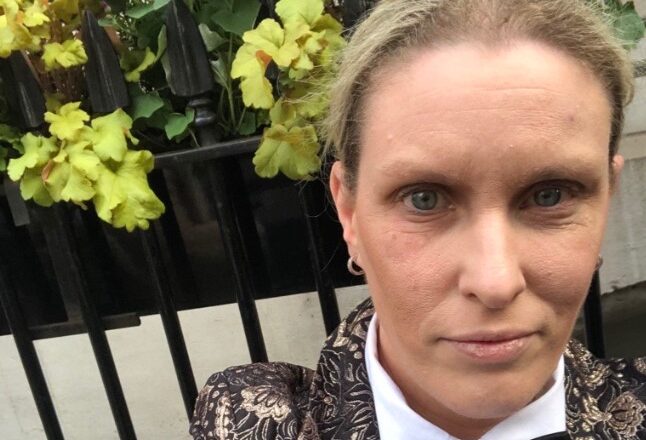Vicky Keene, vice president at Lockton and chairwoman of Lockton’s Pride Committee, speaks to Health & Protection about coming out in what was then a very conservative industry, the importance of LGBT networks and the link between leadership and shaping LGBT-friendly cultures.
What have been your own experiences with regard to attitudes towards LGBT communities in the sector?
When I joined the insurance industry I was in my late teens and not out as a gay woman to anyone as I was still trying to work out exactly who I was, which took me a little longer.
Being the youngest in my team at the time by quite a few years in a very conservative industry was pretty scary and for a long time I hid my personal life from my colleagues, making sure that I never referenced a gender when talking about dating. I was constantly worried about slipping up which was exhausting and took a toll on my mental health.
Finally, getting the courage to come out was a surprisingly positive experience as, first and foremost, my colleagues knew me as a person before knowing about my sexual orientation and so I had a lot of support around me from those that I immediately worked with.
That said, it hasn’t all been plain sailing and during my career, colleagues have expressed their opinions and thoughts on my life in a way that is rarely directed at heterosexual couples, such as de-valuing a partner by referring to them as my ‘friend’ or querying who was ‘the man’ in my relationships.
How have attitudes evolved in the sector?
Compared to earlier years where I certainly felt like the only ‘out’ person that I knew within my industry, and the concept of allyship barely existed, we have come a long way.
There is growing recognition within the insurance sector that having diversity in the workforce generates the best ideas, as different lived experiences generate alternative views. Embracing diversity and creating an environment where team members can bring their whole selves to work will ensure that companies are robust in both times of hardship as well as success.
Attitudes are also changing to appreciate that while there are many different areas of diversity beyond sexuality, there is a lot of crossover between the issues different groups and identities face, and we should embrace collaboration rather than advocating for change in isolation.
What is the sector doing well and where does it need to up its game?
Visibility across the industry has been the biggest game-changer over the last five to 10 years, even with seemingly minor things like seeing people wear rainbow inspired lanyards.
Most companies have their own LGBT networks and the insurance sector’s Link community brings all of the individual company networks together. The thing I really enjoy about this set-up is that while companies may be competing in business day to day, when it comes to sharing ideas on how to establish representation networks, there are a plethora of people who come forward to help.
That supportive environment is something we really benefitted from when starting Lockton Pride, our own LGBT network, as well as trying to pass that knowledge on.
Ultimately, it comes back to a basic human need of everyone needing a safe environment to thrive. To move forward further, the insurance sector has more work to do to appeal to the generation of people at school, college and university to redefine the perception that insurance is for one type of demographic only.
There also needs to be more work on allyship and how we can get comfortable challenging behaviours that should no longer be tolerated within the workplace.
Do you feel encouraged and enabled to bring your whole self to work?
At Lockton, I have felt that I could bring my whole self to work from the day that I joined.
Going back to visibility, there are senior figures within the business that are part of the LGBT community and/or active allies. Leadership shapes the culture of the company and role models the conduct that is expected of everyone.
While there is always room for improvement, our business leaders demonstrate that they want to learn and understand the challenges that their team might be facing due to their sexual orientation, which really makes people feel valued and heard.
